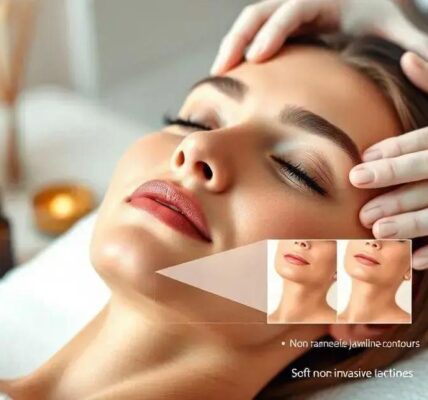Achieving glowing skin is easier than you think with the right beauty hacks. From staying hydrated to using natural ingredients, these tips can transform your skincare routine. Whether you’re dealing with dullness or just want to enhance your natural radiance, these beauty hacks for glowing skin will help you achieve a luminous complexion effortlessly.
Hydration is Key
When it comes to achieving glowing skin, hydration is absolutely essential. Our skin is our body’s largest organ, and like any other part of our body, it needs water to function optimally. Drinking plenty of water throughout the day helps to flush out toxins, keeping your skin clear and vibrant.
But hydration isn’t just about drinking water. It’s also about using the right moisturizers and serums that help lock in moisture. Look for products with ingredients like hyaluronic acid, glycerin, and aloe vera, which are known for their hydrating properties. These ingredients work by attracting water to the skin and forming a barrier that prevents moisture loss.
Another tip is to incorporate a hydrating facial mist into your routine. A quick spritz during the day can refresh your skin and give it a dewy glow. Just make sure to choose a mist that’s alcohol-free to avoid any drying effects.
Lastly, don’t forget about the role of diet in skin hydration. Eating water-rich foods like cucumbers, oranges, and watermelon can contribute to your overall hydration levels and help your skin look its best.
Exfoliate Regularly
Exfoliating regularly is a game-changer when it comes to achieving glowing skin. By removing dead skin cells that accumulate on the surface, exfoliation reveals the fresh, new skin underneath, giving you a more radiant complexion.
There are two main types of exfoliation: physical and chemical. Physical exfoliants include scrubs and brushes that manually slough off dead skin. When using these, be gentle to avoid irritation. Opt for products with fine particles, like sugar or oatmeal, which are less abrasive.
Chemical exfoliants, on the other hand, use acids like alpha-hydroxy acids (AHAs) and beta-hydroxy acids (BHAs) to dissolve the bonds between dead skin cells. These are great for those with sensitive skin, as they tend to be less harsh than physical exfoliants. Products with glycolic acid or salicylic acid are popular choices.
Regardless of the method you choose, it’s important not to over-exfoliate. Twice a week is generally sufficient for most skin types. Over-exfoliating can lead to dryness and irritation, which is counterproductive to achieving that healthy glow.
Remember, after exfoliating, always follow up with a good moisturizer to keep your skin hydrated and to protect the newly revealed layer.
Use Natural Ingredients
Incorporating natural ingredients into your skincare routine can be a fantastic way to achieve glowing skin. Many natural ingredients are packed with antioxidants, vitamins, and minerals that benefit your skin’s health and appearance.
One popular natural ingredient is aloe vera. Known for its soothing and hydrating properties, aloe vera can help calm irritated skin and provide a moisture boost. You can use aloe vera gel directly from the plant or find it in various skincare products.
Coconut oil is another versatile natural ingredient. It’s an excellent moisturizer and can help improve skin elasticity. However, if you have oily or acne-prone skin, use it sparingly to avoid clogging pores.
Honey is a natural humectant, meaning it draws moisture into the skin. It also has antibacterial properties, making it ideal for acne-prone skin. You can use honey as a face mask or mix it with other ingredients for a DIY beauty treatment.
Adding green tea to your skincare routine can also be beneficial. Rich in antioxidants, green tea helps fight free radicals and reduce inflammation. You can use cooled green tea as a toner or look for products that contain green tea extract.
Using natural ingredients is not only beneficial for your skin but also for the environment, as it reduces the number of synthetic chemicals that can end up in our ecosystems.
Sunscreen is a Must
When it comes to maintaining glowing skin, sunscreen is non-negotiable. Sun exposure is one of the leading causes of premature aging, dark spots, and uneven skin tone. By incorporating sunscreen into your daily routine, you protect your skin from harmful UV rays that can cause long-term damage.
Choose a broad-spectrum sunscreen with an SPF of at least 30. Broad-spectrum means it protects against both UVA and UVB rays. UVA rays can prematurely age your skin, while UVB rays can burn it. Both types contribute to skin cancer risk.
Apply sunscreen generously and evenly to all exposed skin about 15 minutes before heading outdoors. Don’t forget areas like your neck, ears, and the back of your hands, which are often overlooked but equally susceptible to sun damage.
Even on cloudy days or when you’re indoors, it’s crucial to wear sunscreen. UV rays can penetrate through clouds and windows, continuing to affect your skin. For those who wear makeup, look for foundations or powders that include SPF, but remember, they should not replace your primary sunscreen.
Reapply sunscreen every two hours, or more often if you’re swimming or sweating. Consistent use of sunscreen not only helps maintain your skin’s glow but also preserves its health and youthfulness in the long run.
Diet and Skin Health
Your diet plays a pivotal role in achieving glowing skin. What you eat can significantly impact your skin’s health and appearance. A balanced diet rich in vitamins, minerals, and antioxidants can help nourish your skin from the inside out.
Incorporate plenty of fruits and vegetables into your meals, as they are packed with essential nutrients. Foods like berries, spinach, and sweet potatoes are high in antioxidants, which help fight free radicals and reduce inflammation, promoting a clear and radiant complexion.
Omega-3 fatty acids, found in fatty fish like salmon and mackerel, as well as in flaxseeds and walnuts, are excellent for maintaining skin elasticity and moisture. These healthy fats help strengthen your skin’s barrier, keeping it hydrated and plump.
Don’t forget about hydration. Drinking enough water is crucial for flushing out toxins and maintaining your skin’s moisture balance. Aim for at least eight glasses a day, and consider consuming hydrating foods like cucumbers and watermelon.
Limit your intake of processed foods, sugar, and dairy, as they can trigger inflammation and lead to breakouts. Instead, focus on whole, unprocessed foods to support your skin’s health.
By making mindful choices about what you eat, you can enhance your skin’s natural glow and keep it looking youthful and vibrant.
Sleep and Skin Rejuvenation
Getting adequate sleep is essential for skin rejuvenation and achieving that coveted glow. During sleep, your body goes into repair mode, regenerating cells and healing damage from the day. This process is crucial for maintaining healthy, radiant skin.
Aim for 7-9 hours of quality sleep each night. Lack of sleep can lead to dull complexion, dark circles, and increased signs of aging. When you don’t get enough rest, your body produces more of the stress hormone cortisol, which can break down collagen and exacerbate skin issues.
To enhance your skin’s rejuvenation during sleep, establish a nighttime routine. Cleanse your face to remove makeup and impurities, then apply a nourishing night cream or serum. Products containing ingredients like retinol, peptides, and hyaluronic acid can support skin repair and hydration.
Consider using a silk pillowcase, as it reduces friction on your skin and helps prevent wrinkles. Also, try to sleep on your back to avoid pressing your face into the pillow, which can cause creases over time.
Finally, create a sleep-friendly environment by keeping your bedroom cool, dark, and quiet. Avoid screens before bed, as the blue light can interfere with your body’s natural sleep cycle.
By prioritizing sleep, you give your skin the time it needs to regenerate and maintain its natural glow.
Conclusão
Em conclusão, alcançar uma pele radiante é uma combinação de adotar hábitos saudáveis e usar as estratégias de cuidados com a pele adequadas.
Ao focar na hidratação, esfoliação regular e incorporação de ingredientes naturais em sua rotina, você pode melhorar a luminosidade da sua pele.
Não se esqueça da importância do protetor solar para proteger contra os raios UV prejudiciais, e lembre-se de que o que você come pode impactar significativamente a saúde da sua pele.
Por fim, nunca subestime o poder de uma boa noite de sono para a renovação da pele.
Ao integrar essas práticas em sua vida diária, você estará no caminho certo para desfrutar de uma tez luminosa e saudável.
FAQ – Beauty Hacks for Glowing Skin
How does hydration affect skin glow?
Hydration helps flush out toxins and keeps skin moisturized, contributing to a clear and vibrant complexion.
What are the benefits of exfoliating regularly?
Exfoliating removes dead skin cells, revealing fresh skin underneath and promoting a radiant appearance.
Why are natural ingredients beneficial for skincare?
Natural ingredients are rich in antioxidants and vitamins that nourish and improve skin health and appearance.
How important is sunscreen in a skincare routine?
Sunscreen protects against UV damage, preventing premature aging and maintaining skin health.
What role does diet play in skin health?
A balanced diet with antioxidants and healthy fats nourishes the skin, enhancing its glow and vitality.
How does sleep contribute to skin rejuvenation?
During sleep, the body repairs and regenerates skin cells, promoting a healthy and radiant complexion.






